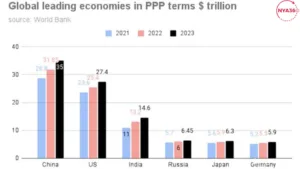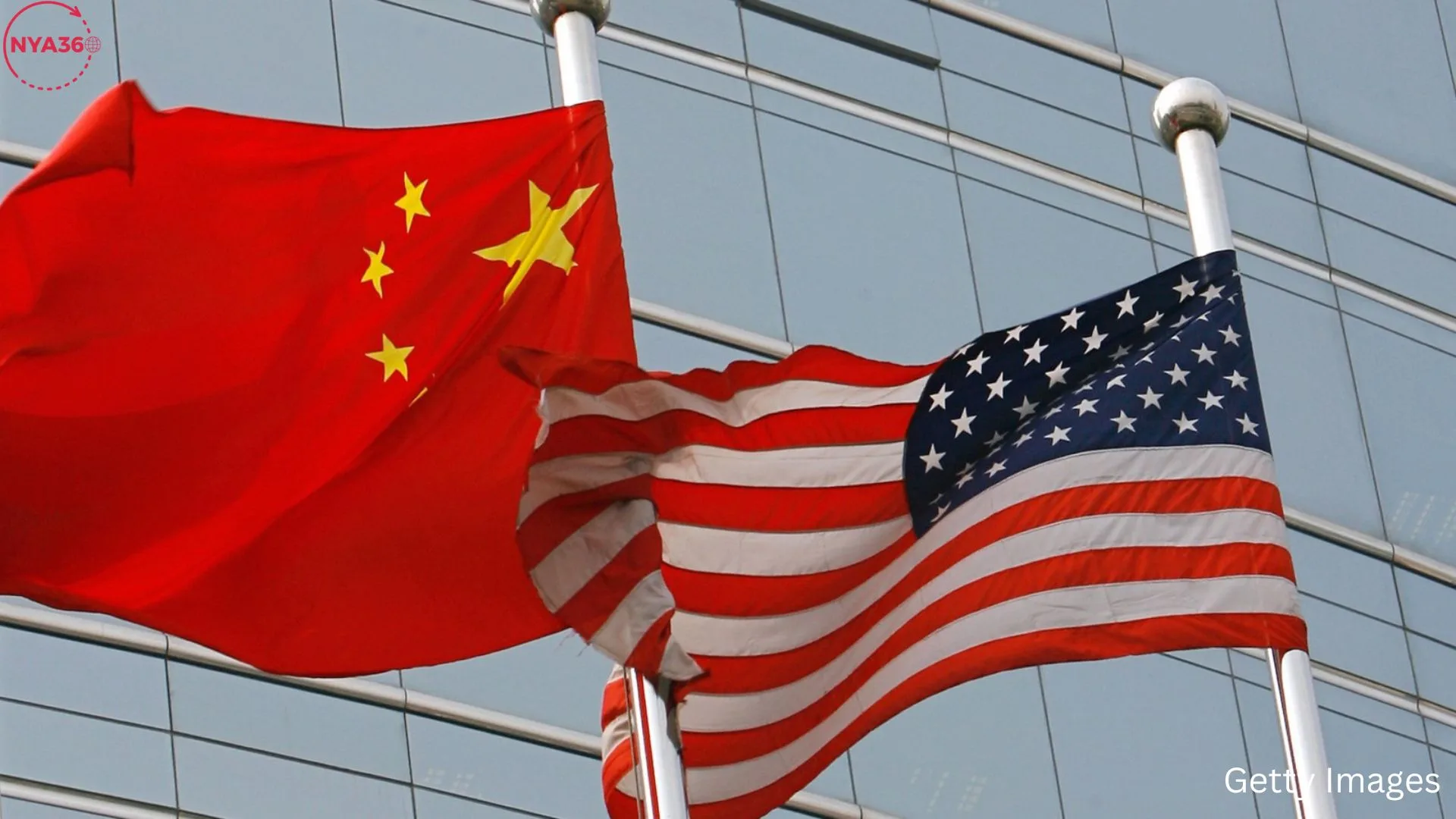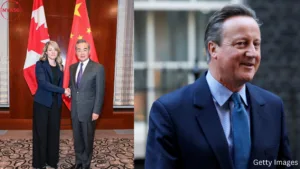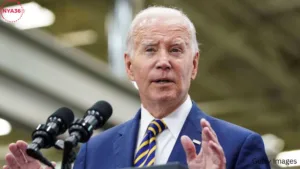China has publicly identified the United States as the “greatest threat to international stability” and the “biggest source of world chaos” in a series of pointed accusations. The rhetoric between the two global superpowers has escalated substantially as a result of these assertions, which have been reiterated by Chinese officials and exacerbated on social media. The complex and adversarial nature of U.S.-China relations is underscored by the ongoing strain, which has far-reaching implications for global stability.
Wu Qian, the spokesperson for the Chinese Defense Ministry, has been particularly vocal in his criticism of the United States. He asserted that the United States is “the primary cause of disorder in the international system” and “the most significant destabilizer of regional peace and stability.” This severe censure was issued in response to a Pentagon report that outlined China’s expanding military capabilities. Beijing regards this report as a direct threat to its sovereignty and regional influence.
Wu Qian’s statements indicate a more extensive sentiment prevalent among the Chinese leadership and the general populace. In China, there is a widespread conviction that the United States is dedicated to maintaining its global hegemony at the expense of the development and interests of other nations. This viewpoint regards American foreign policy as inherently destabilizing, particularly in regions where China has strategic interests.
A precarious equilibrium distinguishes the relationship between the United States and China between persistent tensions and stabilization initiatives. Despite the occurrence of diplomatic engagements, both parties are unable to establish a cohesive agenda that extends beyond basic consultations. The status of Taiwan, human rights issues, and trade imbalances, which have been in dispute for an extended period, continue to present substantial risks of escalation.

Particularly, trade disputes have served as significant flashpoints. The United States has imposed tariffs on Chinese commodities, alleging that China is engaging in unfair trade practices and stealing intellectual property. China has responded by implementing its tariffs and attempting to decrease its dependence on American technology. This trade war has not only disrupted global supply chains and economic stability but has also strained bilateral relations.
Another critical issue is Taiwan. China perceives the United States’ assistance to Taiwan, which encompasses diplomatic support and arms sales, as an infringement on its sovereignty. The U.S.’s naval presence in the South China Sea and China’s military maneuvers near Taiwan have exacerbated tensions, resulting in a volatile situation that has the potential to escalate into an open conflict.
The United States’ actions are motivated by a desire to preserve its preeminent global position, according to Beijing. Chinese officials contend that the United States’ international relations strategy is defined by a zero-sum mentality, in which any advantage gained by another nation is perceived as a disadvantage for the United States. This perspective is further substantiated by U.S. policies that are designed to mitigate China’s expansion, such as strategic partnerships in the Indo-Pacific region and alliances with regional powers such as Japan and Australia.
The destabilizing role of the United States is also evident in the military interventions in the Middle East, its involvement in regime changes, and its sanctions policies, as cited by the Chinese leadership. They contend that these actions have resulted in prolonged conflicts, humanitarian crises, and regional instability, thereby further solidifying the perception of the United States as a source of global disorder.

Global Power Dynamics and Economic Change
The economic landscape is also in a state of flux, which has substantial implications for the dynamics of global power. China currently has the world’s largest economy, valued at $35 trillion, as indicated by purchasing power parity (PPP) metrics. The United States comes in second with $27.4 trillion, India is in third with $14.6 trillion, and Russia has emerged as the fourth largest economy with $6.45 trillion. Japan and Germany are in fifth and sixth place, with $6.3 trillion and $5.9 trillion, respectively.
The relative decline of conventional Western economic dominance and the increasing influence of emerging markets are reflected in these economic shifts. Through initiatives such as the Belt and Road Initiative (BRI), China’s economic growth has been accompanied by a surge in investments in global infrastructure. The BRI is designed to improve economic integration and trade routes throughout Asia, Africa, and Europe. This has further solidified China’s status as a critical actor in global economics and geopolitics.
The ongoing tensions with the Unit

ed States and the accusations from China have substantial implications for international stability. The adversarial relationship between these two nations, which is among the most potent in the world, has a significant impact on global trade, security, and diplomatic alliances. The potential for conflict, whether it be economic or military, is a significant threat to global stability.
Diplomacy and multilateral institutions are indispensable for managing this rivalry. Both nations must devise strategies for coexistence and collaboration to address global challenges, including economic development, pandemics, and climate change. Neglecting to do so could result in an international order that is more fragmented and unstable.
The deep-seated mistrust and competing visions for global leadership between the two nations are underscored by China’s accusations against the U.S. as the “biggest source of world chaos.” The intricacies of contemporary geopolitics are emphasized by the fraught U.S.-China relationship, which is characterized by continuous tensions and efforts to stabilize the situation. The future of international stability and cooperation will be influenced by the interactions between these two superpowers as the global economic landscape evolves.
Follow us on social media: Instagram, Threads & Twitter X @nya360_ YouTube & Facebook @nya360.





